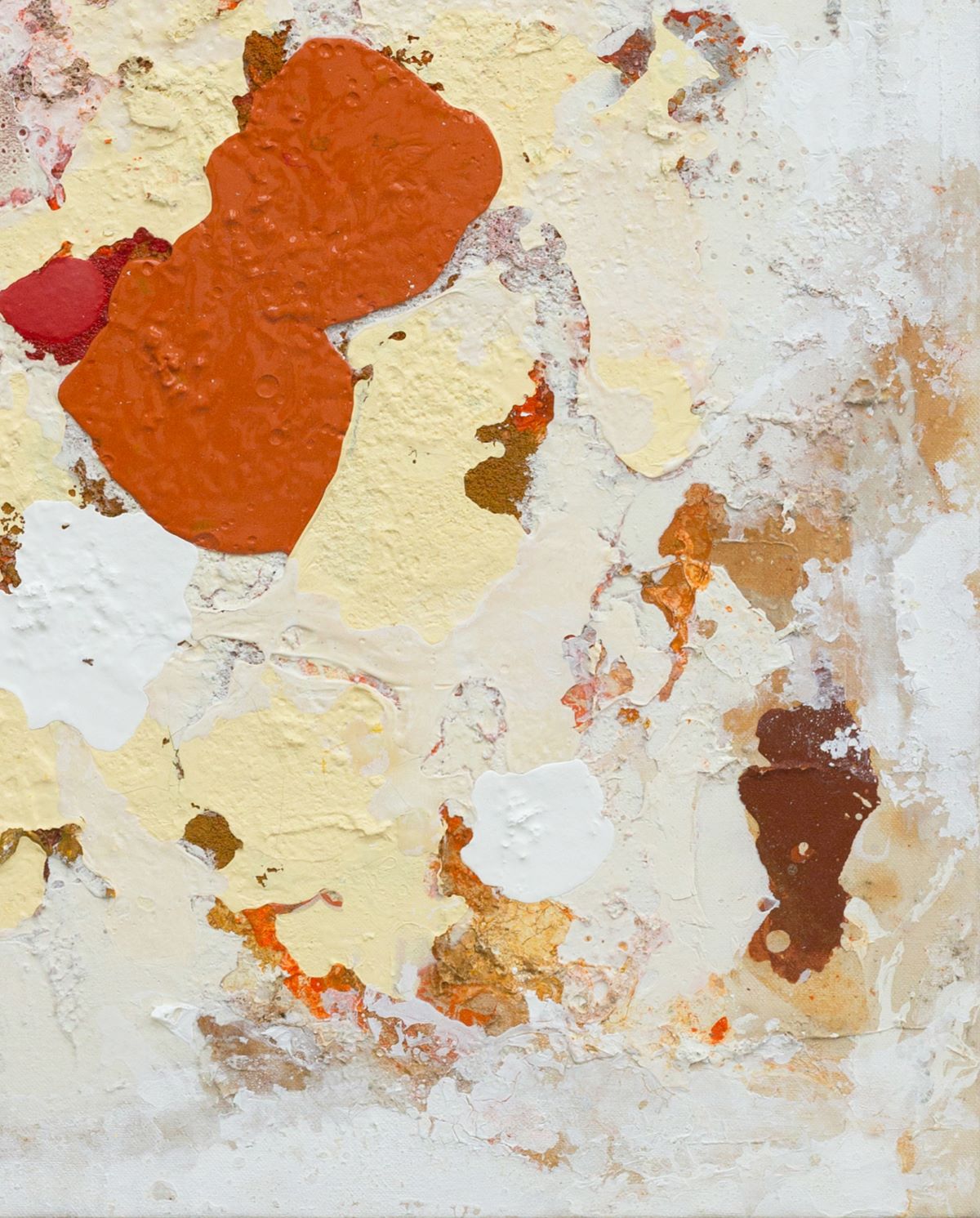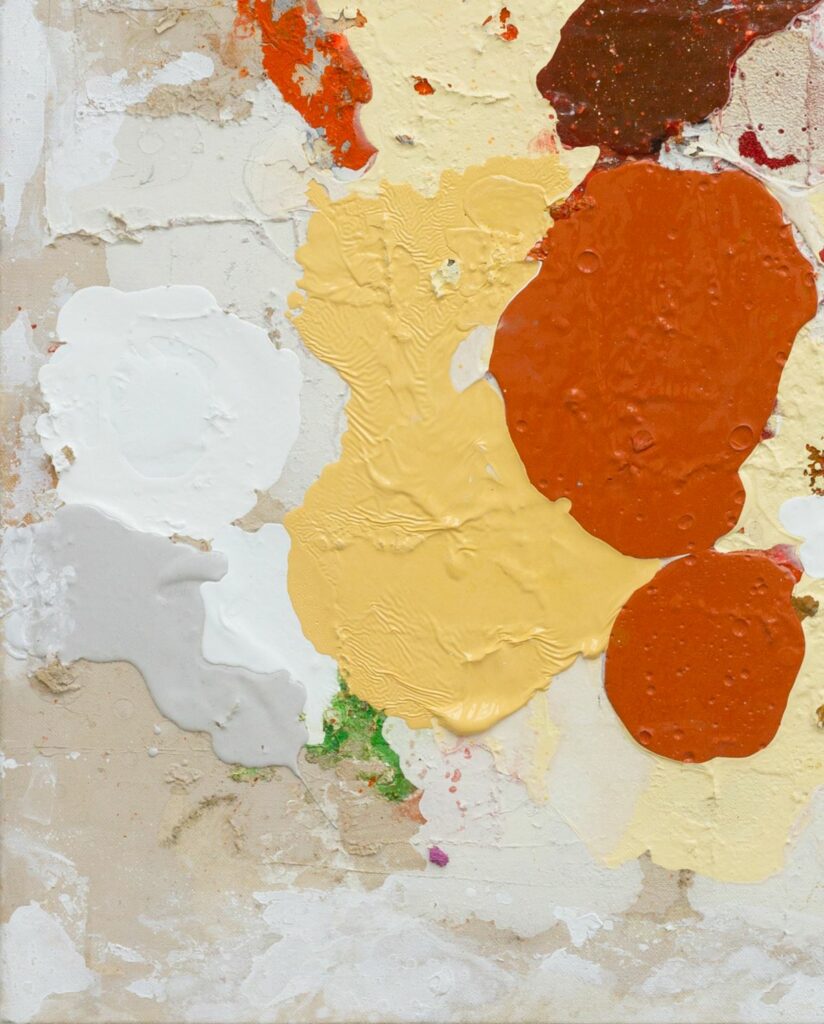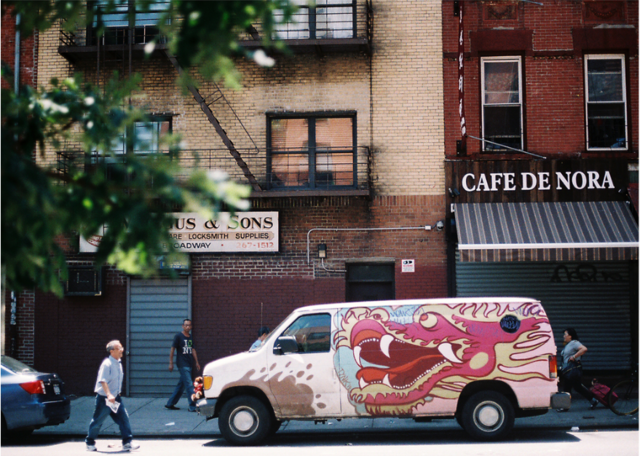Imagining the future through words and through kin

August 30, 2023
This essay is part of Transpacific Literary Project’s monthly column, with art by Mit Jai Inn.
The family home—our home—was a fraction of its size when my parents purchased it in the 1970s. It sits on what I’ll call Bella Hermosa Drive, in San Francisco, on the inset of one of the more voluptuous curves of the street, just under the highest natural point in the city. The property values in the neighborhood have increased multifold in the past several decades. Even the nearby market got an update. Over the years my parents built our home up and out, getting into unneighborly disputes saved only by bureaucratic fluke—once, an administrator from the city’s planning office had misread the property line on a blueprint and threw out the case the neighbors had brought against the expansion, allowing for a shortcut and immediate path forward. My parents, both born and raised in Pakistan, were surprised that a country so seemingly invested in the rule of law could actually contain such slippage. These and other tales like them we only learned recently, when we were all together two Decembers ago.
My twin sister, Ismat, was living in the family home with my parents then. She had moved back to San Francisco earlier in the year from across the country just before the pandemic altered our movements and refashioned our everyday geographies. With the COVID-19 pandemic raging on and forecast only to get worse, my sister, let’s call her Haleema, her husband, James, and their child, Ibrahim, drove out from Austin, Texas to the family home. Ibrahim was two years old then. He is the first of a new generation for our family. My parents, now first-time grandparents, are naturally elated. Seeing my father play with Ibrahim and recall the last time he played with a baby kin (me), softens the stern man he usually tries to be. He must find himself older now, surprised by his age.
Ibrahim was born in April, an Aries. Because he can’t articulate his feelings, I made it a point to start reading his daily horoscope so I could imagine his inner turmoil and emotions. It’s mostly amusing because I don’t actually imagine that he is having mixed feelings about a love interest as of late or that he’s distracted by intellectual pursuits that may harm his social life. For the most part, he tells us his feelings in so many ways: when something tastes or feels good or excites him, he says “nice” or emphatically points and demands “more!”
He mimics us all. Small words (“trash,” “wow”) and noises (car horns, the alarming rumblings of the garbage truck). His obsession with trucks alarms me, but at the same time, it’s endearing. Is gender so entrenched a force? Observing his more minute gestures has sometimes astounded me. He is exhilarated by the sound and sight of airplanes, keeping watch at the window like some inverted spectator listening for thunder after the flash. And for whatever reason, the origin of which cannot be traced, Ibrahim does not call an airplane, an “airplane,” but has opted for a much more difficult word: helicopter, which catches in his mouth and exits as “helicoptcher.”
To the outsider, Ibrahim is white-passing, with blue eyes. Of course, each of us finds ourselves in his features, an almost obligatory genetic scavenger hunt. And so I try and dress him as if he were ours. I buy him a little black kurta, and he wears it with pride. But his tastes are banal, of the gora palette. He is obsessed with those little semi-hard cheese wheels. You know the ones: they’re small, round, and come wrapped in a red wax coat. But these little habits, traits even, tell me a bit more about who he is and who he is becoming.
He’s also learned how to address us, our honorific familial titles. In Pakistani culture, we have a specific name that identifies us in the relative kinship matrix. And so, I’ve adopted a new identity as Mamoo, maternal uncle. What is it to be a mamoo? I had a Mamoo myself, and he was always cool, smooth, nonchalant. He had a singing career in Pakistan: he sang in the style of Elvis, often in English; the cassette tape of which we would play repeatedly as children. The sort of love he showered on me and my sisters was a unique one, carried through with the force of love he had for my mother, his own sister. He was always someone to admire, to look up to.
So, proudly, I donned the name: Mamoo. And, almost jokingly but instinctually, I twisted it into something I recognized, too: Gamoo, a portmanteau of “gay” and “mamoo,” the Guncle translated from its English vernacular and mapped onto its Urdu coeval. It felt audacious, the word. The creation of new futures through language. A private utopia, made between his words and mine.
We think words into existence. And we encounter words sometimes suddenly, to better fit who we are, what we are trying to articulate. We will meet the words at some shore, liminal. Dust off our shoes and empty them of sand, place them gently there and walk down into all the world of words. The ones we’ve relied on, like a crutch, to fill the voids between us. And we’ll think that somewhere we have inherited these words, our inflections. But translation can also be an act of futurity.
Gamoo, for me, epitomizes something at once kitsch and hopeful, something from popular gay cultures in America and transposed onto something traditional. It was a gesture to the unstatic and the traditional. In the word—uttered—I didn’t have to imagine a day in which gamoo and bhanja can sit together, can explicitly account for one another. It had a name, and it was spoken into existence; an unapologetic kinship. My white-passing nephew, his brown gay uncle. But can a gamoo be revered, respected?
It’s hard to unimagine the world and the word. But Ibrahim is possibility—isn’t that what we love in the child? That potential, the force that he will continue, prosper, endure?
A sibling bond can be powerful. Each sibling has learned the emotional world alongside the others, and each links the other to some of their most formative, shared years. When we talk now, hours on end with endless chai, in all forms of repose on the couches spread out over the family room, we try and engage our specific memories in a compromise of debate that we then agree on—who was where, what restaurant did we go to, when it occurred. And it’s an entire history we shape with our words, and trace as historiographers a world we’ve imagined we lived together.
And then a new orator comes along.
I remember when Ibrahim was born. We were nervous. James was communicating news from the hospital but still, we worried. And then, finally: the photo, shared digitally. I knew I would care for him, but I hadn’t realized how much of a joy it would be to see my sister as a mother, my twin as a khala (maternal auntie), and my parents as grandparents—so overwhelmed and succumbed to the joys and interior world of a two-foot-tall infant. As a baby, he was sweet, but as a toddler, he is ever more present and ever more a person; he has quirks; he has odd behaviors and reactions and interests. He is so very earnest.
And there are moments that feel historic: like in the six o’clock hour one Thursday evening, when you’re playing roll-the-ball-off-the-coffee-table with Ibrahim just before bath time and, unprompted, he says “I love you,” because he was having such a good time with you. Earnest, unencumbered by the articulations of love that accentuate who we are and, ultimately, come to define us. Just a kinship, a bond spoken into existence by its utterance.
And then, eventually, they returned to Texas.
For all the futurity we imbue in our kids, I’m content having known him now, at the age of two, as the little kid who would lean up against you if you promised him a ride on the “choo choo,” which really just meant he loved you for being kind enough to spend a few passing moments with him. Tiny histories, played and replayed, perhaps a memory formed, or maybe just a word–Gamoo–that he’ll hold onto, its origins beknownst only to his burgeoning memory, and your failing one.
Of course now that he’s left, we watch every airplane streak slowly across the sky from our perch on Bella Hermosa and hear the excited phantom yell. We trace it with our sight, holding the words in our mouths, trace the ghastly overhead white border it draws in its wake across an otherwise shapeless sky. Articulate but ephemeral, like our words.



